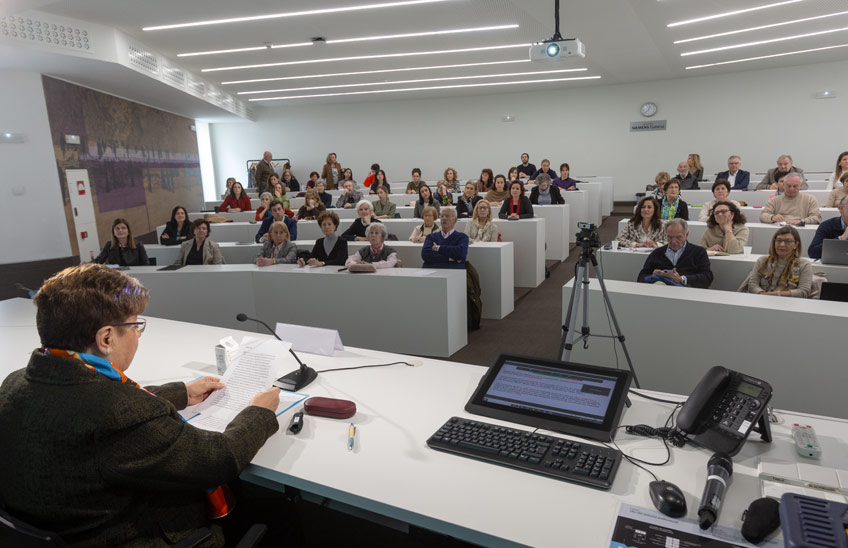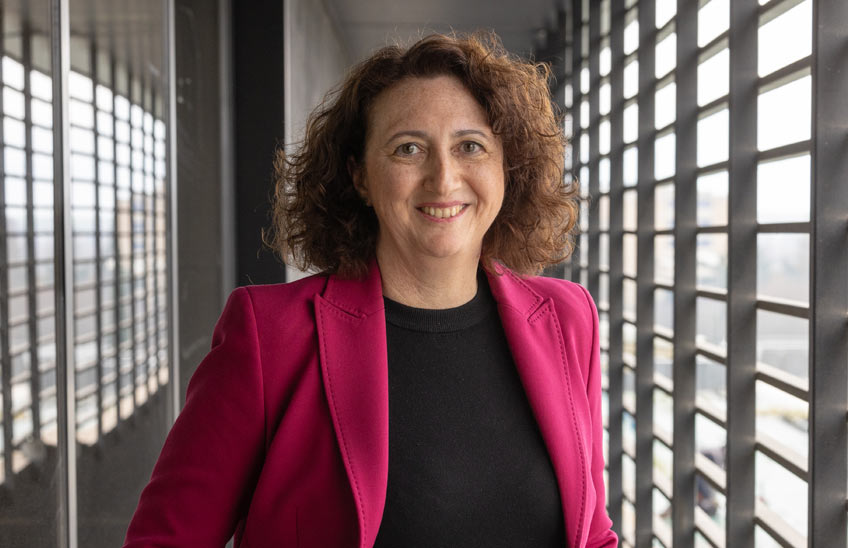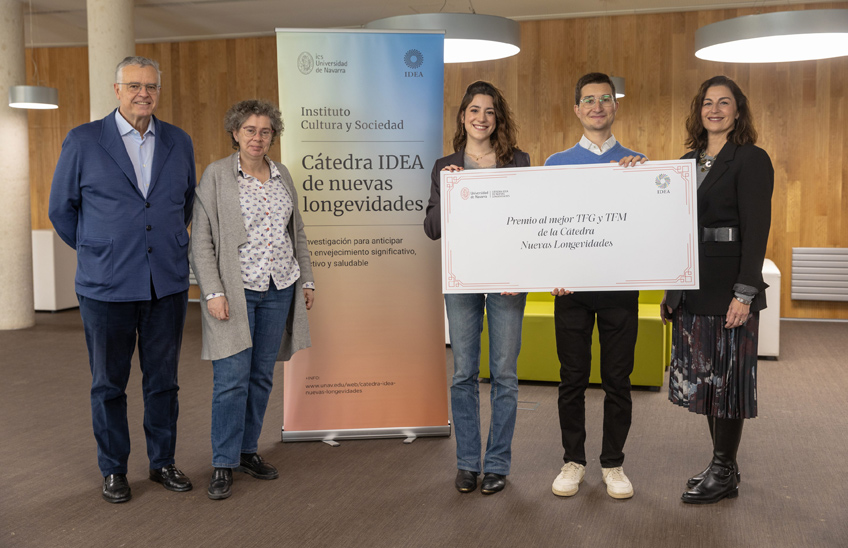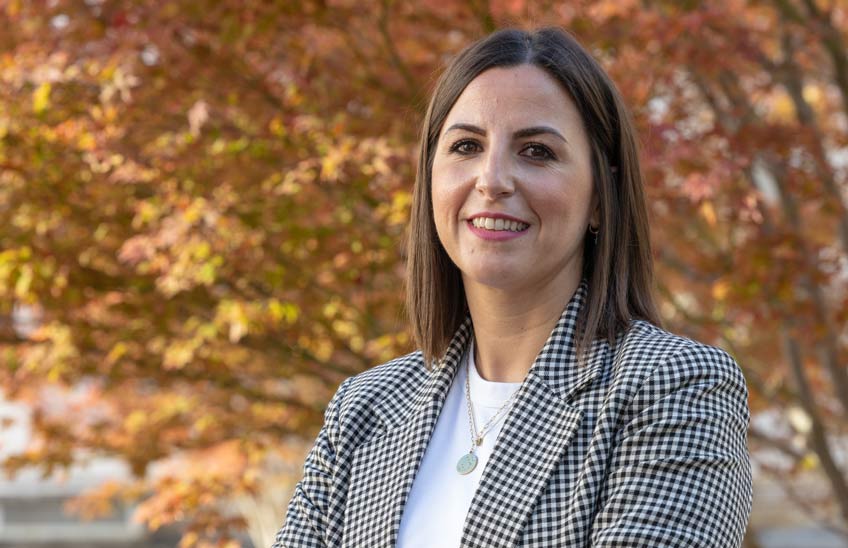"Public policies to help families are needed at all times of life."
María Teresa Bazo, the first professor of Sociology of Aging, has analyzed population aging in the context of the socioeconomic changes that have taken place in the last few years.

FotoManuel Castells<br>/María Teresa Bazo (UPV) durante su conferencia en el Instituto Cultura y Sociedad
21 | 02 | 2024
"Public policies to help families are necessary at all times of life". This was the opinion of María Teresa Bazo, Professor of Sociology at the University of the Basque Country, during the lecture 'Population aging: Changes and challenges' as part of the Chair IDEA on New Longevities of the Institute for Culture and Society (ICS) of the University of Navarra.
According to Bazo, first Chair in Sociology of the Elderly at the Spanish University, public policies influence family relationships. In the research on generational solidarity (project European OASIS) in which the expert participated, it has been detected that, for the first time in history, it is the older parents who offer financial aid economic support to their adult children. This demonstrates the importance of public policies in relation to material well-being staff. "Although inequalities exist, economic and social advances mean that the elderly population in general has more resources than ever before," she pointed out.
He also criticized the fact that, in Spain, public policies do not provide sufficient support to families. In the case of families with small children, in many cases, grandparents are an essential resource . In our country we have detected a lower issue of grandparents caring for their grandchildren compared to our European neighbors, but grandparents are committed to caring for them on an ongoing basis. Support in other countries is mainly exercised on an ad hoc basis. According to the expert, the lower economic activity rate of women and the reduced issue of public day care centers in Spain lead a certain issue of families to see grandparent caregivers as an alternative to paying another caregiver or private center or to stop working.
Aging and care
Life expectancy has increased globally, although unevenly. In Spain, in 2021, 20% of the population will be over 65 years of age and 6% will be over 80. Not only are people living longer, but they are living better than before, the researcher pointed out. According to the indicator of life expectancy in health, in Spain at 65 years of age women (although they live longer than men) will spend 43.8% of their years living in relatively good health. Among men this time in health will be greater, 55.7% of the years to live. "An essential topic to take into account in political debates is long-term care," Bazo pointed out. In this sense, this growing and very heterogeneous group will gain weight and political influence: "The demands for care policies, increasingly considered a right, will be responded to by the State with services," he said.
From agreement with their research, in Spain "the expectation of the responsibility of the state and public services in the care of the elderly has increased". Although in other European countries, such as Norway, the role of public services in caring for the elderly and dependents is primarily valued, Spaniards preferred informal care, the family. However, this trend is changing and the support of children is mainly emotional and, to a lesser extent, instrumental. For the professor, intergenerational family solidarity is still very strong in Spanish society and also in Europe, with its variants.
Thus, the expert advocated coordination between the formal care Structures , public services, and informal care, the family. "The family will always be necessary, I see it as very difficult for the generations that succeed us to lose the link between one and the other", she concluded.



